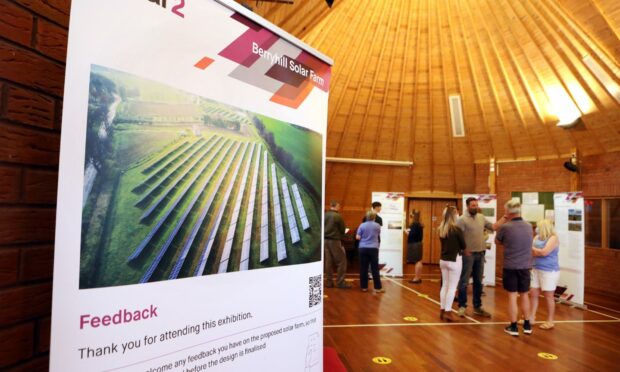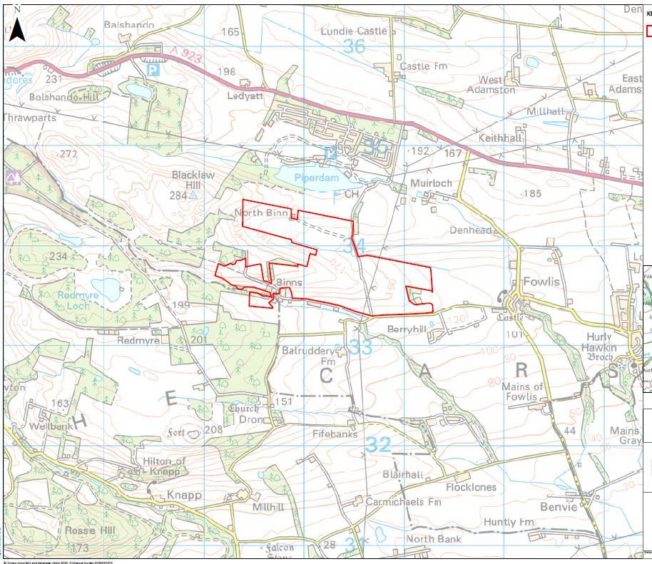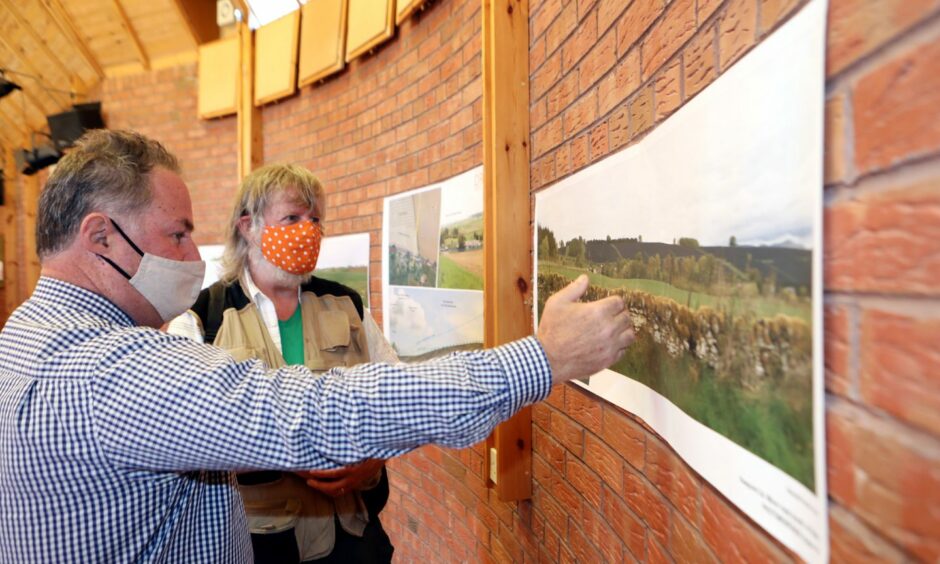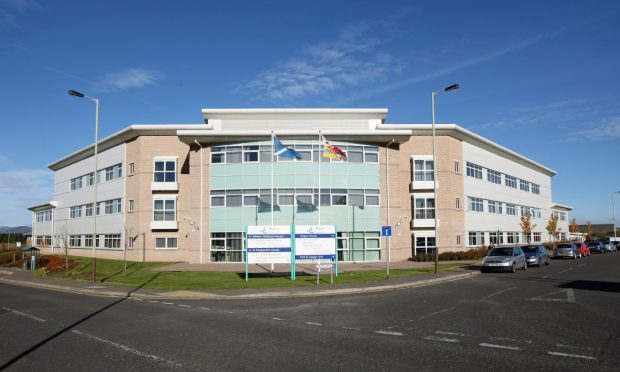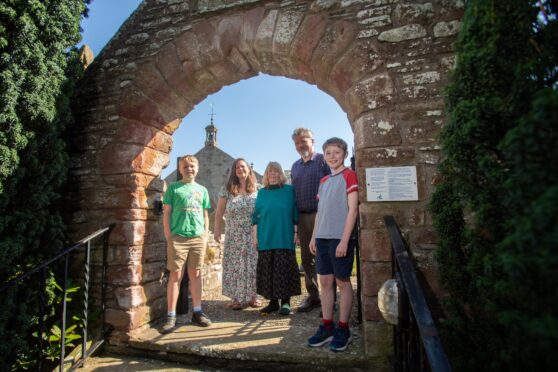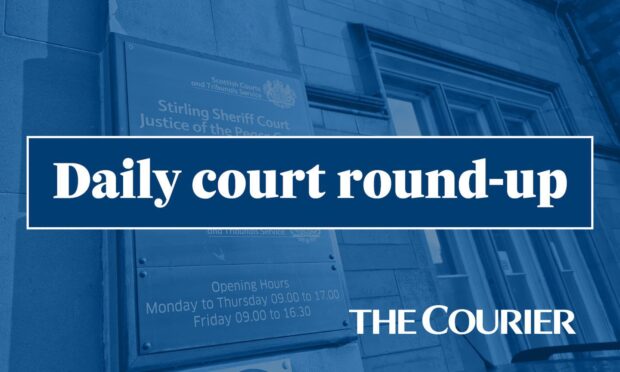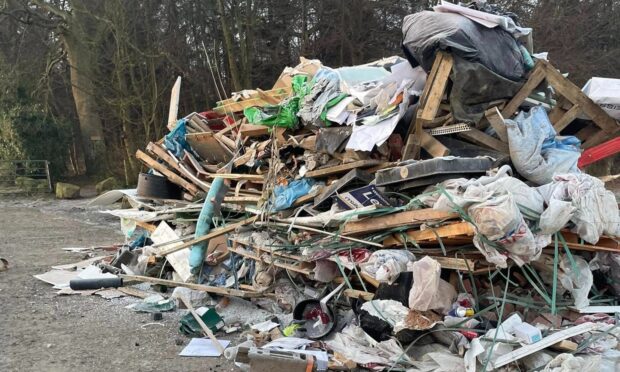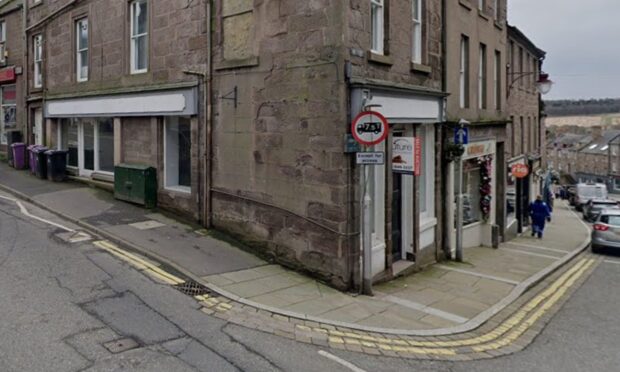A rural community’s impassioned pleas have swayed Angus councillors into blocking an “industrial” solar farm on their doorstep.
The 49.9 megawatt Berryhill development on the county’s border with Dundee and Perthshire would have been Scotland’s joint largest.
Sitting near the village of Fowlis and just south of the Piperdam leisure resort, its 120 hectares was earmarked for 152,000 solar panels.
Applicants Solar 2 aimed to generate enough renewable energy to power 12,500 homes.
It was the third attempt to take forward a project first mooted seven years ago.
But against an approval recommendation from planning officials, Angus development standards councillors voted to reject the bid on Tuesday.
It now remains to be seen where the developers go with the proposal.
But an appeal to the Scottish Government seems likely.
Tearful submissions
The Berryhill plan drew 150 representations – 136 of those against the project.
Campaign group Spare (Save and Protect Rural Angus Environment) led opposition to the project.
And founder David Speedie told councillors approving the farm would “run a coach and horses” through their policy.
He labelled the project “grossly inefficient and greedy”.
But it was the powerful and tearful submissions of locals which councillors said presented them with one of the toughest decisions they had ever faced.
They included the words of young mum Kirsty Smith.
She captured the mood of nearby residents in pleading with the committee not to allow the solar farm to destroy a “glorious green piece of Angus heaven.”
And Sara Jaconelli, wracked with emotion, told the virtual committee: “I urge the committee to refuse it on behalf of the people who reside and visit this beautiful area
“We want to save and protect the rural environment.”
Another opponent told councillors: “I beg you to put yourself in our position.
“See the human impact it would have on families.”
Berryhill: The decision-makers’ dilemma
And in the end it was an application which deeply divided the committee councillors.
Development standards convener David Lumgair said he had lain awake at 1.30am considering the pros and cons of the proposal.
“In over 20 years on development standards this is the most difficult decision I’ve had to make,” he said.
“But I am going to go with the officers and move this (conditional approval) report.
Montrose councillor Bill Duff said: “We’ve heard some heartfelt pleas, but we’ve got a bigger responsibility to the climate.”
And Arbroath member Alex King said the council had to “firmly grasp the nettle.”
“This is the first to come up in Angus on this scale – it won’t be the last.
“We’re going to have to accept we’re going to be a country that uses electricity on a much greater scale.
“The only way to get it is from renewable sources – wind, wave and solar.
“We maybe don’t like the impact on some people in the area.
But if we’re going to maintain the lifestyle we expect, plugging in our laptops, televisions and cookers, it’s got to come from somewhere.
“If it doesn’t we’ll be back cooking on open fires in our gardens.”
Human impact
However, the human side of the debate led to the 8-5 vote against the plan.
Local councillor Craig Fotheringham said: “Every one of these objectors has spoken from the heart.
“This is way out of character for a picturesque area in rural Angus.
“It will have a significant impact.
“I will support my constituents, and I will not support this application.”
Arbroath councillor Brenda Durno said: “For future solar energy to be successful, solar facilities must be harmonised with the eco-system, agriculture and human needs.
“If communities are excluded and overlooked, the benefits of renewable energy could be outweighed by negative consequences.
“If innovative strategies and inclusive approaches continue to gain momentum, the future of solar energy fields will be bright.
“But we have to look at both sides of the story.”
Farmer William Moncrieff expressed his disappointment over the committee outcome.
